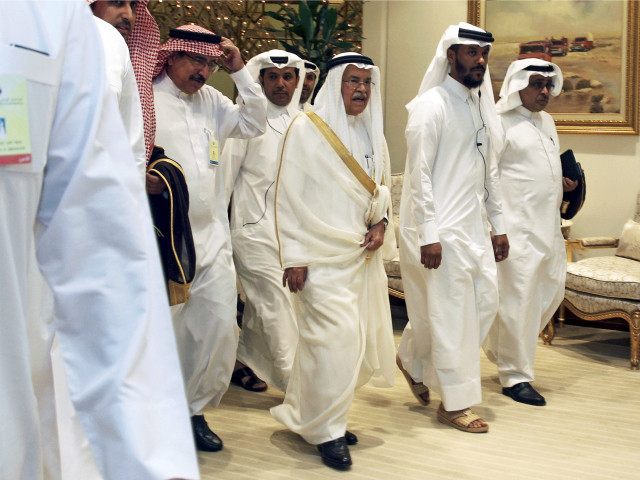Heritage Foundation Middle East expert Jim Phillips reviewed President Trump’s decision to hold off on moving the U.S. Embassy in Israel to Jerusalem on Friday’s Breitbart News Daily.
“During the campaign as a candidate President Trump, like many other candidates, promised to move the embassy, and said that that would be one of his first acts as president,” Phillips recalled.
“But then once in office, it seems like there was a slow retreat,” he noted. The reason given was that the president believes he has a chance to advance the peace process and believes that moving the embassy could disrupt that peace process.”
“I think that’s one of the problems with getting involved with peace as a process, rather than as a long-term goal, that once you elevate that process above other U.S. goals, then you’re kind of at the mercy of that process. I think this is a case in point,” he said.
SiriusXM host Joel Pollak asked where that seemingly endless “peace process” stands right now.
“I would argue that very little is happening, and has happened, and that this idea of a process is kind of an illusion,” Phillips replied. “The Oslo peace accords signed in 1993 have been essentially dead but nor buried. It’s kind of a zombie policy. But it’s politically incorrect to point out that those negotiations are dead.”
“In the past, U.S. presidents have gone along with the illusion that there are still some kind of negotiations going on. While I think that’s possible in the long run, in the short run I don’t think there really can be a realistic peace process, because even if Israel signed a perfect treaty with the Palestinian Authority tomorrow, Hamas would be in a position to blow it up the next day with another round of rocket terrorism,” he said.
“As long as Hamas has a hammer lock on Gaza, which it’s turned into a large missile base, then I don’t think there really is a chance for peace – but that’s politically incorrect to say in Washington,” he lamented.
Philipps agreed with Pollak’s suggestion that fear of violence perpetrated against other U.S. embassies in retaliation for moving to Jerusalem might have given the State Department pause.
“I think that is very true, that this has been seen as a neuralgic issue for a long time. There were fears for the security of embassies. I think even beyond that, an anticipation that if the embassy was moved to Jerusalem, that would threaten the standing of Arab leaders that have sided with the U.S. on other issues, and which Washington wants to cooperate with – for instance in the war against ISIS or containing Iran,” Philipps proposed.
“It appears that one of the most influential meetings that may have swayed the president was when he met with King Abdullah in Jordan,” he noted. “I think the king would be one of the biggest losers if the embassy was moved, because that would become a convenient lightning rod for the king’s enemies to mobilize opposition to him, saying that he’s standing with the Americans when they’re siding against Palestinians. Palestinians make up more than half the population of Jordan.”
“Also, the leader of Egypt was opposed, and I think those are two countries that signed peace treaties with Israel whose leaders perceive the embassy move as a threat to their own domestic political sustainability,” he said.
Phillips was skeptical of promises from the White House that the embassy would be moved to Jerusalem after the six-month waiver signed by President Trump expires.
“The administration has said it’s not a matter of ‘if,’ it’s ‘when,’” he observed. “But I think the administration may be overly optimistic about the prospects for a final settlement anytime soon, for reasons which I’ve already mentioned.”
“I think the only thing that is likely to occur, if anything, in negotiations is for interim baby steps,” Phillips predicted. “As long as Hamas is there, any treaty that led to a Palestinian state would lead either to a failed state, or a terrorist state. I don’t think that is going to happen in the next four years under Trump’s leadership.”
John Bolton is a senior fellow at the American Enterprise Institute and head of his own political action committee, BoltonPAC.

COMMENTS
Please let us know if you're having issues with commenting.